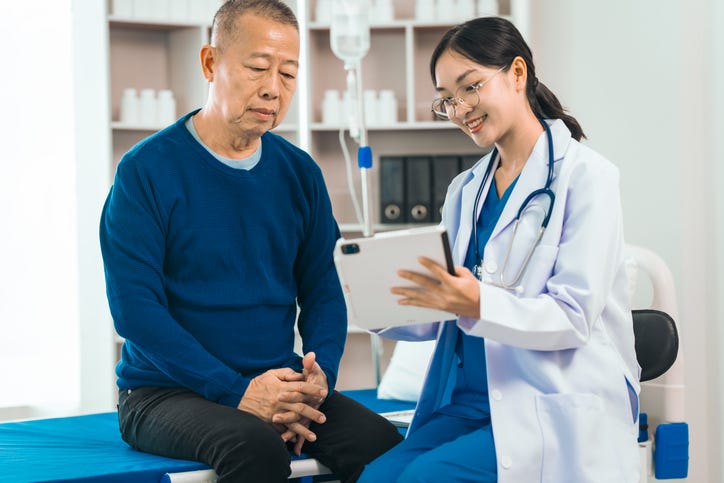
SAN FRANCISCO (KCBS RADIO) -- Asian Americans face significant health disparities, particularly in the realm of liver disease. Despite making up only 6% of the U.S. population, they account for a staggering 60% of liver cancer cases. To address these issues, the University of California, San Francisco has launched the Asian Liver Health Center, a specialized facility designed to improve outcomes and raise awareness within the Asian American community.
Dr. Elizabeth Zheng, transplant hepatologist and co-director of the UCSF Asian Liver Health Center, said one of the biggest driving factors for liver cancer within the Asian community is hepatitis B, which is a virus that can be passed through blood and sexually transmitted as well.
"I think that many people within the Asian community may have contracted hepatitis B at a very young age through blood, for example, through vertical transmission, we call it. So when mom is pregnant with baby, the mother can pass it down to the baby through blood. And it isn't until actually recently, since 1991 or the early 1990s, when people have been undergoing vaccination for hepatitis B," Dr. Zheng told KCBS Radio's Bret Burkhart on this week's episode of "As Prescribed."
That means many individuals in the Asian American community who were born before 1991 were never vaccinated against hepatitis B, making them more susceptible to the virus and its long-term complications, including cirrhosis and liver cancer.
Raising awareness about hepatitis B and its potential to cause liver cancer is a key goal for the UCSF Asian Liver Health Center.
"And so by just raising awareness on hepatitis B, we're hoping that we also can prevent the development of liver cancer," said Dr. Zheng. "I think the main issue is that a lot of patients don't even make it to us because they are not diagnosed with liver cancer in a timely manner. And so I think our role is not just to provide this kind of specialized care, but really try to increase a lot of awareness."
In addition to medical challenges, there are also significant cultural and linguistic barriers that can prevent Asian American patients from accessing the care they need.
"With the Asian Liver Health Center, we're trying to really decrease this linguistic barrier by asking patients if they would prefer to see a provider who can speak their native language, for example, Cantonese or Vietnamese," said Dr. Zheng. "And we're also in the process of increasing a lot of educational materials that are not just in English, but also have been translated to Mandarin or to Vietnamese, as well as other languages, just so that we can really improve education."
If a patient is diagnosed with liver cancer, specialists at the Asian Liver Health Center use a multidisciplinary approach to create a personalized care plan.
"At UCSF, we're able to offer very specialized care for liver cancer," said Dr. Zheng. "We offer multidisciplinary care, meaning that when somebody is diagnosed with liver cancer, they are scheduled in our liver cancer clinic and they see not only myself and other potential hepatologists or liver specialists, but they also see a surgeon and they see an interventional radiologist. And we kind of all help to create a very individualized plan for treating the liver cancer."
Listen to this week's "As Prescribed" to learn more. You can also listen to last week's episode about how early screening can catch this leading cause of cancer deaths, here.
DOWNLOAD the Audacy App
SIGN UP and follow KCBS Radio
Facebook | Twitter | Instagram
“As Prescribed” is sponsored by UCSF.
